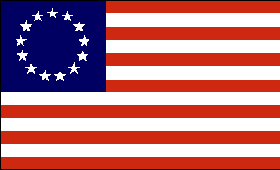Colonial Wars |
American Wars |
Link To This Page — Contact Us —
The Battle of Wofford's Iron Works
August 8, 1780 at Buffington, Spartanburg County, South Carolina
(aka Second Battle of Cedar Spring)
 |
|||||||||||||||||||
|
Col. Charles McDowell was camped at Cherokee Ford with not more than a thousand men (according to Draper), and had sent out an advance force of an estimated 600 mounted men under Colonel Isaac Shelby, Col. Elijah Clark, and Col. William Graham to keep watch on and check the foraging parties of Ferguson, who is thought to have had 400-600 according to one account, and 1,500-1,800 men according to Draper.
On the evening of 7 August, Shelby, Clark and Graham, expecting a direct attack, retreated from their bivouac two miles west of Cedar Spring to an area near Wofford's Iron Works a few miles north, on Lawson's Fork of the Pacelot.
On the morning of the 8th, Ferguson's advance guard of 114 dragoons and mounted loyalists under Maj. James Dunlop attacked, but, outnumbered was beaten back with some loss. When Ferguson's came up with the main force however, Clark, Shelby and Graham's men were forced to make a hasty retreat. Ferguson pursued them some four or five miles but after the backcountry men had posted themselves on some high ground called, he off his attack and withdrew. Much of the battle took on the form of a running engagement, and some versions speak of two separate but closely related skirmishes going on simultaneously. The number of men involved and of casualties in the battle is not clear, there being different versions of each coming from both sides. However, it would seem on the surface fair to say that Dunlop and Ferguson outnumbered Shelby, Clark and Graham, and the losses for both sides were about the same except that the Americans took more prisoners. It is not stated that Ferguson even took any. Draper presents and examines the various versions of the battle at considerable length in his Kings Mountain and Its Heroes. As with a number of facts about the battle, the given number of casualties differ. Shelby, cited in Draper, reported 20 British were taken including 2 officers. Ripley states the British lost 8 to 34 killed and wounded, and making reference to two separate reports says Shelby, Clark and Graham lost either 3 killed and 21 wounded, or else 21 killed to 50 wounded, preferring the lower figure. Allaire gives the loyalist losses as 20 to 30 killed, and 3 captured. The Rebel loss was not certain, but as many as 22 were wounded including, Col. Clark.
Allaire: “Tuesday, 8th. Learning that the Rebel wagons were three miles in front of us at Cedar Spring, Captain Dunlap, with fourteen mounted men, and a hundred and thirty militia, were dispatched to take the wagons. He met three Rebels coming to reconnoitre our camp; he pursued, took two of them-the other escaped, giving the Rebels the alarm. In pursuit of this man, Dunlap and his party rushed into the centre of the Rebel camp, where they lay in ambush, before he was aware of their presence. A skirmish ensued, in which Dunlap got slightly wounded, and had between twenty and thirty killed and wounded-Ensign McFarland and one private taken prisoners. The Rebel loss is uncertain. A Maj. Smith, Capt. Potts, and two privates, were left dead on the field. Col. Clark, Johnson and twenty privates were seen wounded. We pursued them five miles to the Iron Works, but were not able to overtake them, they being all mounted. We countermarched five miles to Cedar Spring, and halted to refresh during the heat of the day. At six in the evening, marched and took a height near the ground the Rebels left.”
Chesney: "On the 9th August I was appointed Capt. and assistant Adjutant General to the different battalions under Col. Ferguson; and same day we attacked the enemy at the Iron works and defeated them with little trouble to ourselves and a good deal of loss to the Americans, in whose hands I found some of our men prisoners, whom I released.”
Lossing: “While Ferguson was in Spartanburg District, on his way toward Gilbertown, a detachment of his little army had a severe skirmish with Colonel Clark and his men at Greene's Spring. Clark and his company, some two hundred in number, had stopped at the plantation of Captain Dillard, who was one of them, and, after partaking of refreshments, proceeded to Greene's Spring. The same evening Ferguson arrived at Dillard's, whose wife soon learned, from the conversation of some of his men, that they knew where Clark was encamped, and intended to surprise him that night. She hastily prepared supper for Ferguson and his men, and while they were eating she stole from the room, bridled a young horse, and, without a saddle, rode to the encampment of Clark, and warned him of impending danger. In an instant every man was at his post, prepared for the enemy. Very soon Colonel Dunlap, with two hundred picked mounted men, sent by Ferguson, fell upon the camp of Clark. Day had not yet dawned, and the enemy were greatly surprised and disconcerted when they found the Americans fully prepared to meet them. For fifteen minutes the conflict raged desperately in the gloom, when the Tories were repulsed with great slaughter, and the survivors hastened back to Ferguson's camp.”
